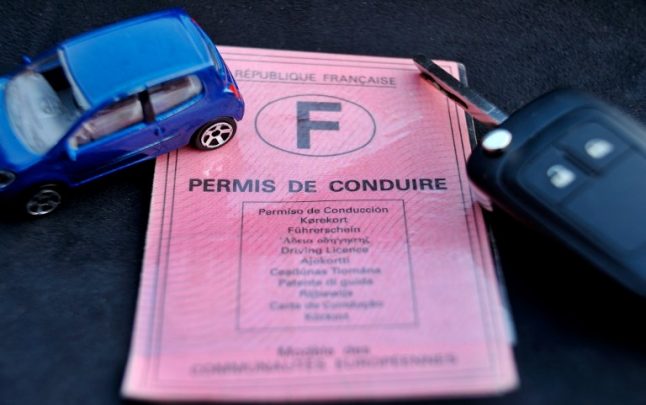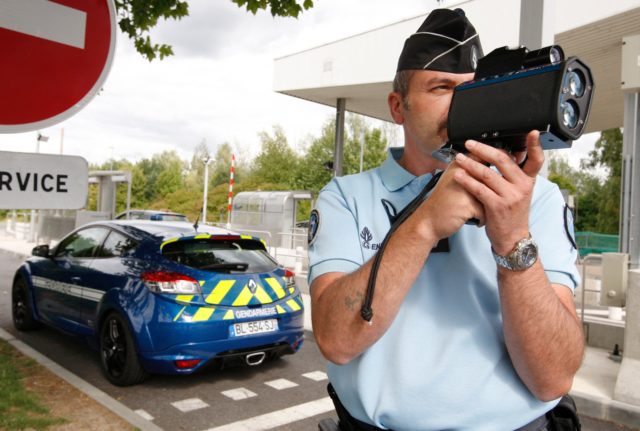The issue of the impact of Brexit, especially a no-deal exit from the EU, on driving licences has been a real concern for Britons in France.
Initially Britons in France were advised to exchange their driving licences as soon as possible to avoid the prospect of having to take a driving test in France.
That led to thousands of Britons inundating French authorities with exchange applications which led to a huge backlog. Many have been waiting over a year to get their French driving licence.
Eventually French authorities decided to stop accepting applications unless it was to replace a lost, stolen or soon-to-expire licence.
Then in April the French passed a decree that said authorities would continue to recognise UK driving licences in the future even in the event of a no-deal Brexit.
That came as a huge relief to many drivers, although it wasn't much help for those who had already applied and were stuck in the system.
The British government is still advising people not to seek to exchange a British driving licence for a French one because of long delays.
In a sign of the difficulty around getting the right information to Britons in France, the UK government has had to correct information around the expiry of photocards after The Local contacted French authorities to confirm it.
Initially the British government said that anyone with a UK photocard licence that is about to expire did NOT need exchange it.
“Only the expiry of your entitlement is concerned, not that of your photo card. The expiry of your photo card does not restrict your right to drive in France,” the site read.
The British government said only those with four months remaining on the actual licence, rather than the photocard, should apply to exchange it.

But after The Local asked French authorities to confirm if this was correct and if British drivers would be able to take to French roads with out-of-date photocards, the advice changed again.
French authorities in Nantes told The Local they have been in touch with the British government to flag up the problem.
Now anyone who has a photocard licence due to expire within 6 months is advised to apply to exchange it for French licence.

Drivers with British licences can request a certificate of entitlement from the the DVLA authority in the UK which specifies more clearly when the person's actual licence will expire, rather than their photocard ID.
While in theory drivers are able to drive using the “Certificate of Entitlement” even if their photocard has expired they may run into problems if they are stopped by the French police.
Kim Cranstoun, who runs the Facebook group Applying for a French Driving Licence told The Local most gendarmes or police will be sympathetic as long as you exchange is in the system.
She recommends getting the Certificate of Entitlement from the DVLA if your licence is expired or is about to.
She also recommends some other tips to British drivers.
“If people have applied for an exchange, it is recommended that they keep a copy of all correspondence in the car as evidence should they get stopped. Even though the officials can check they do like to see a piece of paper,” she said
Having a copy of France's no deal decree in the car is also recommended. The decree tells people to exchange their licence if it is due to expire in six months.
A spokesperson for the British embassy told The Local: “It’s advisable for British drivers in France to have a valid photo card. Though your driving licence entitlement may be valid, if the accompanying photo card has expired, there is a risk the police may challenge you.”
The government says anyone who needs a change of licence to drive other types of vehicles or those who have committed driving offences in France resulting in points deductions or even a suspension should exchange their licence.
“In all other cases, if you are resident in France before the day the UK leaves the EU, you do not need to exchange your licence to drive legally in France. French authorities will continue to recognise your licence as before Brexit,” reads the government website.
It also notes that the Centre d’Expertise et de Ressources des Titres (CERT) in Nantes, which deals with exchanges is being reorganised “to deal with the backlog with delays which are currently between 8 and 12 months.”
If you are in the process of exchanging your UK licence via CERT, do not try to renew in parallel with DVLA because this will invalidate your CERT application. Applications in the UK with a French address cannot be processed.
In terms of driving in France after Brexit, the government reminds Britons that: “If there is a deal, driving licence rules will stay the same during the implementation period,” which currently ends on December 31st 2020.
If Britain leaves without a deal on October 31st then anyone “resident in France on the day the UK leaves the EU will continue to be able to drive in France with your UK driving licence under the same conditions as any resident.”
But for those who move to France after Brexit day, if there's a no-deal then they “will have a one-year period to exchange their UK driving licence for a French one.”



 Please whitelist us to continue reading.
Please whitelist us to continue reading.
Shouldn’t a lot of these British living here have exchanged these licences ages ago before all this brexit kicked off.